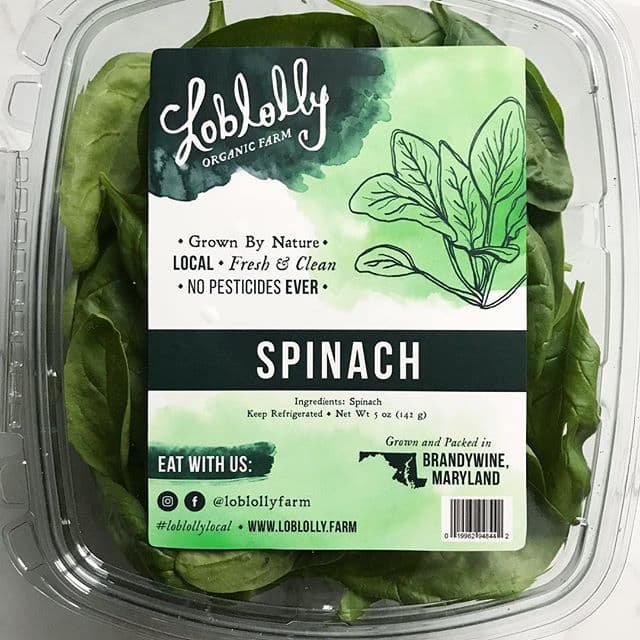Are Your Food Labels Up to Date? FDA Labeling Rules You Need to Know
This entry was posted on October 17, 2024 .
When it comes to food labels, accuracy isn’t just a suggestion—it’s a legal requirement. Whether you’re a small food producer or a large manufacturer, it's essential to follow FDA label rules to avoid costly recalls and protect your brand’s reputation.
A simple oversight, like missing an allergen declaration, can have serious consequences for both your business and your customers.
In this blog, we’ll review common labeling mistakes that have led to product recalls and discuss how you can ensure your labels are compliant with food label requirements.
Labeling Mistakes That Can Lead to Recalls
Even if your product is perfectly safe, inaccurate or incomplete food labels can still result in a recall. Regulatory agencies like the FDA require clear, precise information on all food packaging to protect consumers, especially those with food allergies or dietary restrictions.
Here are a few recent examples of companies that had to recall products due to labeling errors:
- 1. Gerber Baby Food Recall
Gerber recalled its Cheese Ravioli Pasta Pick-Ups because it didn’t list egg in the "contains" allergen list, although egg was included in the ingredient list. This error could have caused severe allergic reactions in people sensitive to eggs. - 2. Whiskey Hill Jerky Recall
Whiskey Hill Smokehouse had to recall its jerky products due to an undeclared allergen: soy. The recall affected various jerky types, including beef, venison, and ostrich, showing how wide-reaching the impact can be when label requirements aren’t met. - 3. Sunshine Bakery Cakes Recall
Sunshine Bakery voluntarily recalled several cake products, including cassava and mixed nut mooncakes, due to undisclosed allergens like peanuts, coconut, and cashews. Some of these products also contained sunflower seeds, further complicating the issue. - 4. Picone Meat Specialties Salami Recall
Picone Meat Specialties recalled over 5,700 pounds of salami because it contained non-fat dry milk, a known allergen that wasn’t listed on the label. The USDA’s Food Safety and Inspection Service found the issue during a routine check, leading to the recall.


Why Food Label Compliance Matters
The examples above highlight the importance of staying compliant with FDA label rules. Even small mistakes can lead to widespread recalls, costing your company time, money, and customer trust. Avoiding these pitfalls requires careful attention to detail when designing your product labels.
Here’s why food label compliance is so critical:
- Protecting Consumers: Clear labeling ensures that consumers, particularly those with allergies or special dietary needs, are informed about what’s in the product.
- Legal Requirements: The FDA has strict guidelines for food label requirements. Missing even one piece of critical information, such as allergens or ingredient details, can put your product in violation of FDA labeling regulations.
- Preventing Recalls: Recalls are expensive, logistically complicated, and damaging to a brand’s reputation. By following FDA labeling rules, you can avoid the risk of pulling your product from store shelves.
What You Need to Know About Food Label Requirements
The FDA’s food label requirements cover several critical areas, including:
- Ingredient Lists: All ingredients must be listed in descending order by weight. This ensures consumers know exactly what they’re eating.
- Allergen Statements: Major allergens, such as milk, eggs, soy, peanuts, and wheat, must be clearly disclosed. This is a key part of protecting consumers from allergic reactions.
- Nutrition Facts: The nutrition facts panel must be formatted according to FDA guidelines and include accurate information about calories, fat, carbohydrates, protein, vitamins, and more.
- Other Claims: If your product makes claims like "organic" or "gluten-free," you need to comply with additional FDA regulations that govern those terms.
The Future of Food Labeling Rules
Staying up to date on FDA label rules is more important now than ever. The FDA continues to update its regulations, and new requirements are often added to reflect current health guidelines and consumer expectations.
For example, the FDA has been updating the nutrition facts panel to provide more transparency regarding added sugars and serving sizes. As regulations change, businesses must adapt their labels accordingly, or risk having noncompliant labels that could result in recalls.
Partner with a Trusted Label Printer
Navigating food label requirements can be complex, but you don’t have to go it alone. Working with an experienced label printer like Lightning Labels can help ensure your labels are accurate, compliant, and professionally designed.
Here’s how we can help:
- Fast Turnaround: We offer quick printing solutions to help you stay compliant, even if regulations change.
- Small Minimum Orders: Need to update your labels frequently? No problem. We offer low minimum orders so you can make changes as needed without overcommitting to large print runs.
- Custom Label Solutions: Every product is different, and we provide custom solutions that meet the specific needs of your food or beverage brand.


Final Thoughts: Stay Ahead of Food Label Requirements
Accurate food labeling is essential for both compliance and customer trust. Missing information, such as undisclosed allergens, can have serious consequences, including product recalls and potential harm to consumers.
By keeping up with FDA labeling rules and working with a trusted label partner, you can avoid costly mistakes and ensure that your products meet all necessary food label requirements.
Need help with your food labels? Reach out to Lightning Labels today to get started on designing and printing FDA-compliant labels for your products.

 Custom Labels
Custom Labels  Custom Beverage Labels
Custom Beverage Labels  Custom Lip Balm Labels
Custom Lip Balm Labels  Custom Warning & Safety Labels
Custom Warning & Safety Labels  Perfume Bottle Labels
Perfume Bottle Labels  Bumper Stickers
Bumper Stickers  Custom Prop 65 Warning Labels
Custom Prop 65 Warning Labels  Custom Stickers
Custom Stickers